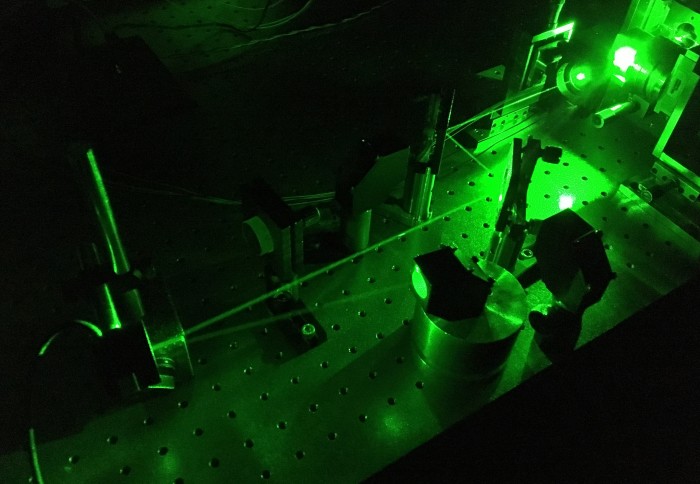
Global S&T Development Trend Analysis Platform of Resources and Environment
| Imperial researchers receive Royal Academy of Engineering Research Fellowships | |
| admin | |
| 2020-08-14 | |
| 发布年 | 2020 |
| 语种 | 英语 |
| 国家 | 英国 |
| 领域 | 资源环境 |
| 正文(英文) | 

Two researchers working on advanced biomedical imaging and developing new lubricants have been awarded new fellowships. Dr Timothy Runcorn from the Department of Physics and Dr James Ewen from the Department of Mechanical Engineering will use their Royal Academy of Engineering Research Fellowships to advance the fields of medical diagnostics and tribology (friction and lubrication). The Academy’s Research Fellowships are designed to advance excellence in engineering by enabling early-career researchers to concentrate on basic research in any field of engineering. Each awardee receives five years’ worth of funding to advance their research careers. They also receive mentoring from experienced Academy Fellows, providing valuable advice and industry links that will enable the researchers to establish themselves as future leaders in their fields. The Imperial awardees have scooped two of the 16 Fellowships awarded this year. Advanced biomedical imaging - Dr Timothy Runcorn
Currently, this requires highly complex and expensive lasers, preventing its widespread use in hospitals. Dr Runcorn will engineer new fibre laser technology to develop cost-effective clinical endoscopes – cameras inserted through the mouth or anus – that use these imaging techniques. Dr Runcorn said: “I am absolutely delighted to be awarded an RAEng Research Fellowship so that I can focus on developing the next generation of imaging probes that will hopefully one day improve the experience of patients undergoing cancer screening.” Developing new lubricants - Dr James Ewen
Through a combination of molecular science and engineering, Dr Ewen is developing methods to design new lubricants using computational approaches. The flexible tools he develops will also be used to optimise fluids required for the moving parts in electric vehicles. Dr Ewen will collaborate closely with researchers at Shell (via the University Technology Centre for Fuels and Lubricants) and Afton Chemical as well, as university researchers across Europe. “It is a huge honour to be awarded this prestigious Research Fellowship by the Royal Academy of Engineering,” said Dr Ewen. “My research focusses on using molecular simulations to improve our understanding of the atomic-scale processes that drive friction and wear at the macroscale. Modern lubricants are complicated, multicomponent fluids, and current evolutionary design approaches cannot give the performance benefits we need. "The long-term support provided by the Research Fellowship will allow me to develop computer-assisted design approaches for lubricants alongside my industrial and academic collaborators.” |
| URL | 查看原文 |
| 来源平台 | Imperial College London |
| 文献类型 | 新闻 |
| 条目标识符 | http://119.78.100.173/C666/handle/2XK7JSWQ/287525 |
| 专题 | 资源环境科学 |
| 推荐引用方式 GB/T 7714 | admin. Imperial researchers receive Royal Academy of Engineering Research Fellowships. 2020. |
| 条目包含的文件 | 条目无相关文件。 | |||||
| 个性服务 |
| 推荐该条目 |
| 保存到收藏夹 |
| 查看访问统计 |
| 导出为Endnote文件 |
| 谷歌学术 |
| 谷歌学术中相似的文章 |
| [admin]的文章 |
| 百度学术 |
| 百度学术中相似的文章 |
| [admin]的文章 |
| 必应学术 |
| 必应学术中相似的文章 |
| [admin]的文章 |
| 相关权益政策 |
| 暂无数据 |
| 收藏/分享 |
除非特别说明,本系统中所有内容都受版权保护,并保留所有权利。
修改评论